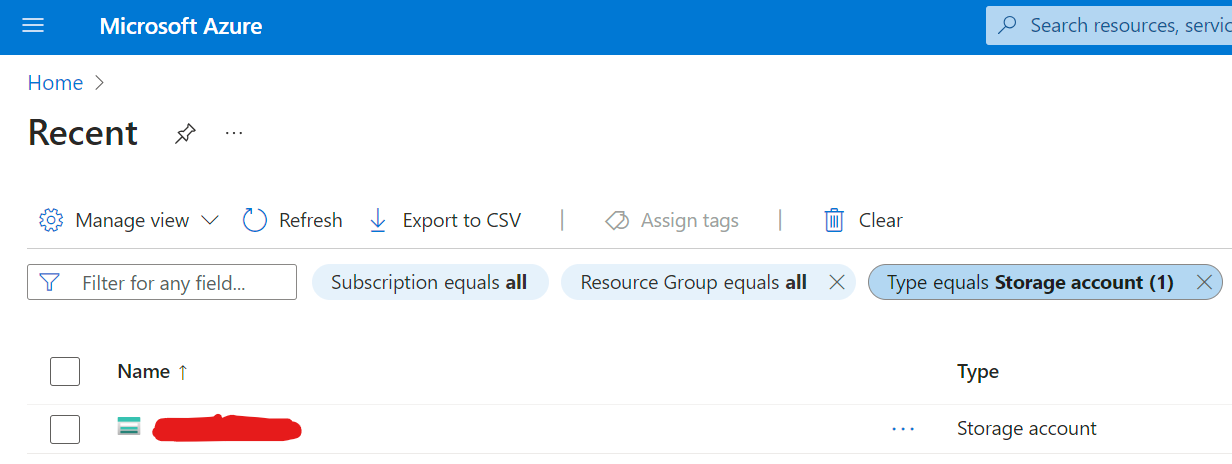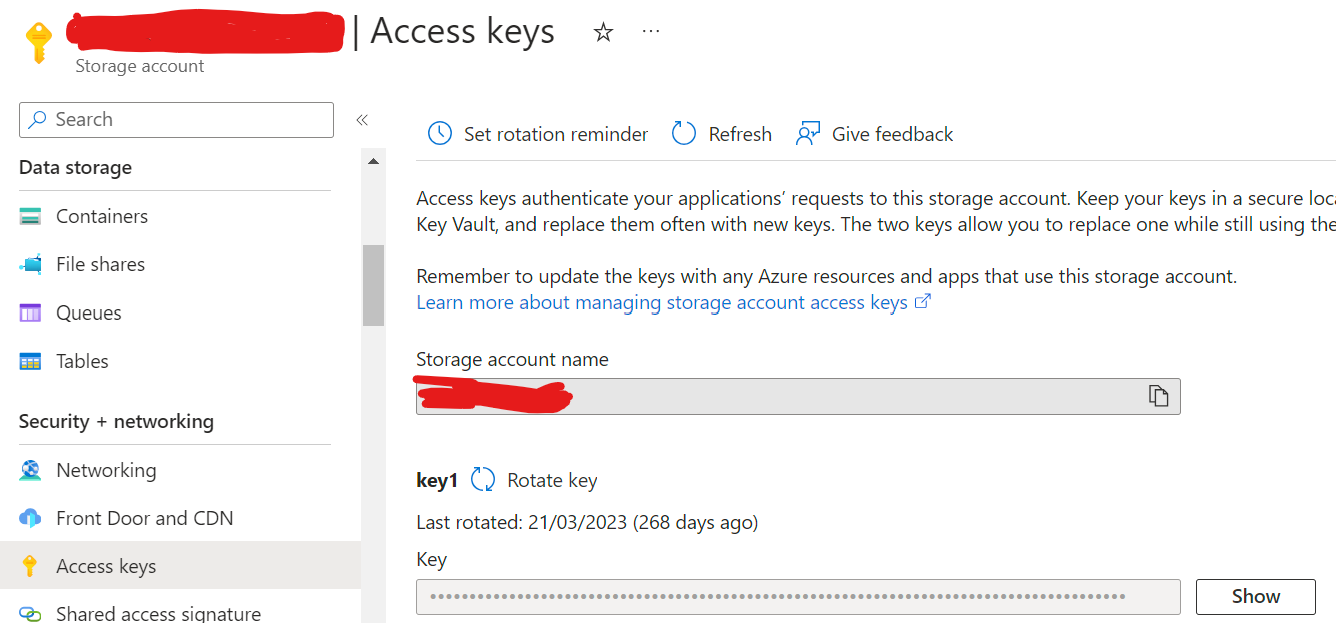An easy and secure way to share data with colleagues is using Azure Data Storage containers.
This is how I mount such container using bibfuse (developped by my friend Sylvain) and systemctl --user
About Azure containers
From Azure Portal, you can filter for “Storage Account”
In the following page, I will use “my_storage_account”
And from “my_storage_account”, I can get my storage key from “Access keys”
In the following page, I will use “my_storage_key”
Installation - Set-up
install dependancies
sudo apt-get install libfuse3-dev fuse3
sudo apt-get install blobfuse2
1pip install bibfuse
- 1
-
install in base
Usage
list all storage accounts
bibfuse list --accounts
> my_storage_account
mount all containers from a storage account
in ~/AZURE
bibfuse mount ~/AZURE --account my_storage_account --all
unmount all containers
should be called from ~/AZURE
cd ~/AZURE
bibfuse unmount –-all
cd -
mount a given container container_1
bibfuse mount ~/AZURE/container_1 --account my_storage_account --container container_1
Start this with systemd --user
I will use 4 files for that:
mount_azure.sh in ~/bin to mount all containers
unmount_azure.sh in ~/bin to unmount all containers
mount_azure.conf in ~/bin to store BIBFUSE_SECURE_PATH, BLOBFUSE2_SECURE_CONFIG_PASSPHRASE
bibfuse.service in ~/.config/systemd/user with the service logic
#changed filename for confidentiality reason
!cat ~/bin/mount_azure\ \(copy\).sh
#!/bin/bash
source ~/miniconda/etc/profile.d/conda.sh
source ~/bin/mount_azure.conf
export BLOBFUSE2_SECURE_CONFIG_PASSPHRASE
export BIBFUSE_SECURE_PATH
conda activate base
bibfuse mount ~/AZURE/zyoung --account my_storage_account --container container_1
!cat ~/bin/unmount_azure.sh
#!/bin/bash
cd ~/AZURE
source ~/miniconda/etc/profile.d/conda.sh
source ~/bin/mount_azure.conf
export BLOBFUSE2_SECURE_CONFIG_PASSPHRASE
export BIBFUSE_SECURE_PATH
conda activate base
bibfuse unmount --all
cd -
#changed filename for confidentiality reason
!cat ~/bin/mount_azure\ \(copy\).conf
BIBFUSE_SECURE_PATH=/home/guillaume/.config/bibfuse
BLOBFUSE2_SECURE_CONFIG_PASSPHRASE=anypassphrase<16
!cat ~/.config/systemd/user/bibfuse.service
[Unit]
Description=Mount azure storage account with bibfuse
DefaultDependencies=no
After=network.target
[Service]
Type=simple
#User=guillaume
#Group=guillaume
EnvironmentFile=/home/guillaume/bin/mount_azure.conf
ExecStart=/home/guillaume/bin/mount_azure.sh
ExecStop=/home/guillaume/bin/unmount_azure.sh
TimeoutStartSec=5
RemainAfterExit=yes
[Install]
WantedBy=default.target
setup systemd –user bibfuse.service
Activate systemd for users
loginctl enable-linger guillaume
Load bibfuse service
systemctl --user daemon-reload
Start / Stop / Status
systemctl --user start bibfuse
systemctl --user stop bibfuse
systemctl --user status bibfuse
and everything looks great, activate to start at boot time
systemctl --user enable bibfuse
monitor logs for bibfuse
Just the standard way, but using --user
journalctl –-user -f -u bibfuse
# or without -f (output appended data)
journalctl –-user -u bibfuse

